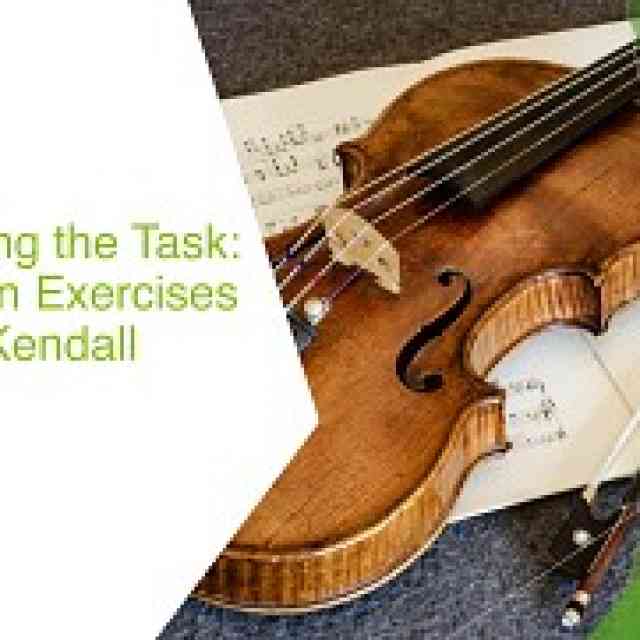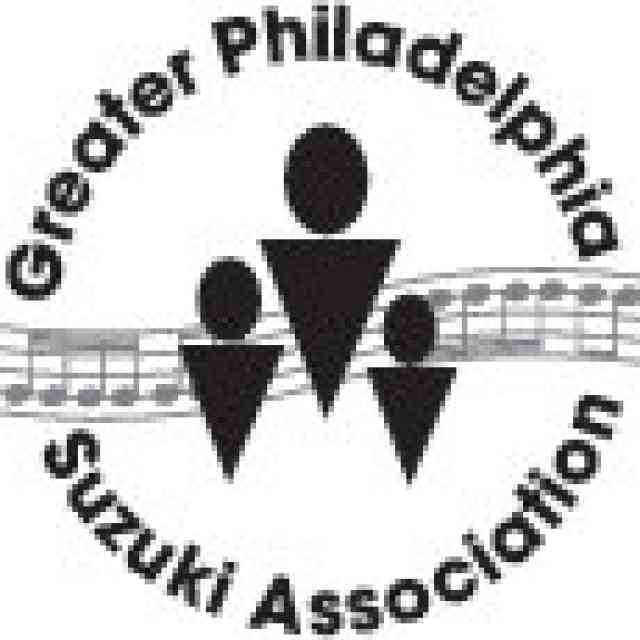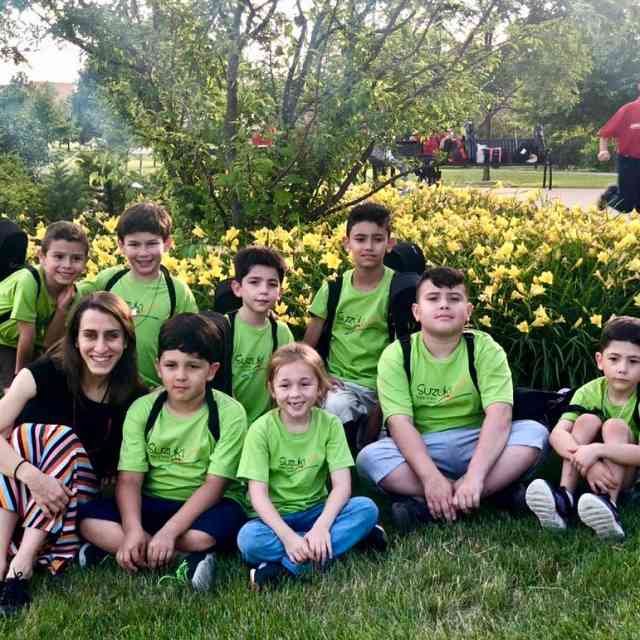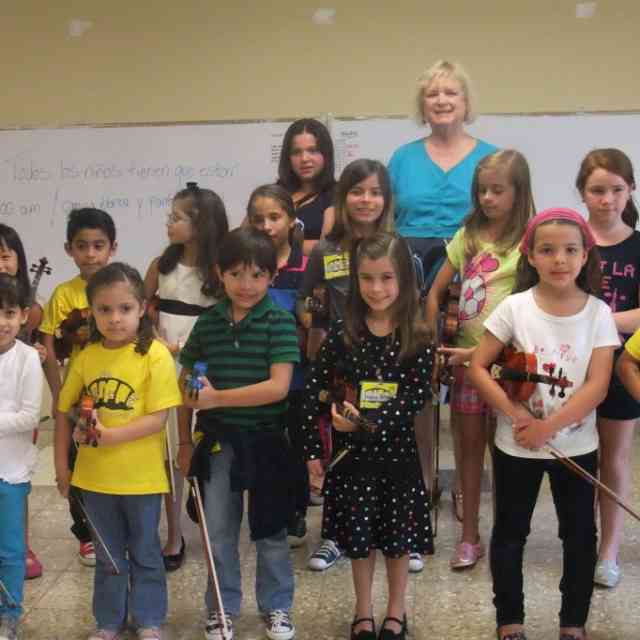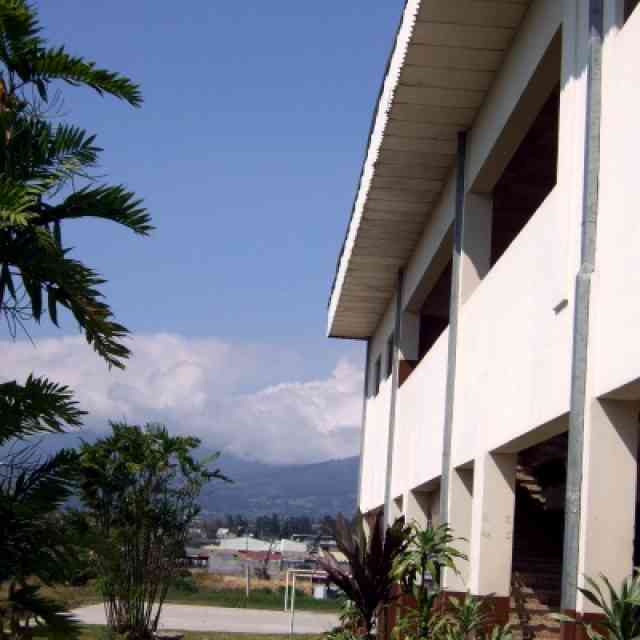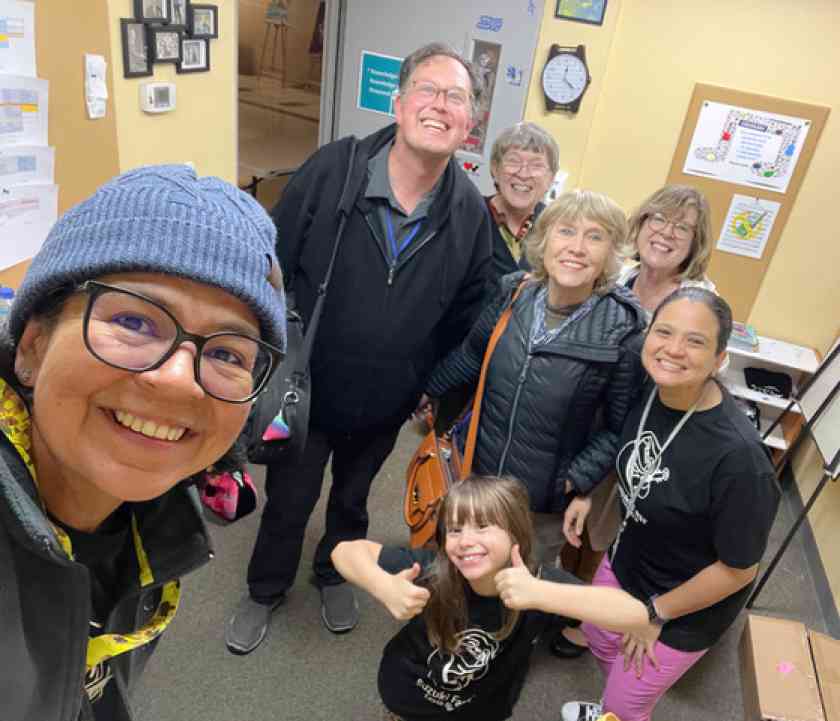
Lidia Blanco, Brian Lewis, Barbara Balatero, Nicolette Solomon, Ann Montzka-Smelser, and Carla Loaiza-Yee (left to right).
Have you ever had a conversation, or seen something, or thought of something that became life-changing? This is a story about lives being changed. It was a very happy afternoon on a clear day in 2008 at the SAA conference in Minneapolis. My good friend, Suzuki teacher trainer, Liz Arbus said “I need you to meet two amazing gals, they’re from Costa Rica.” A few hours later, I was sitting down for a drink with Lidia Blanco and Carla Loaiza-Yee at the Hilton Bar. White Russians were ordered, and the conversation reached fever pitch, spelling out ideas and dreams. These two remarkable women reminded me of my dreams and determination to start a Suzuki program in South Africa in 1970. Lidia and Carla were both teaching the violin at the Instituto Nacional de la Música (known as "La Sinfónica") in San Jose, a government-funded music conservatory, and Lidia had also started a Suzuki program at the Lincoln School. Their dream was to unite the Instituto students, the private students, the Lincoln students as well as incorporate the “Sinem” students (Costa Rica’s equivalent to El Sistema) in an annual Suzuki Fest. This Suzuki Fest was to offer Suzuki teacher training for any and all violin and cello teachers in Central and South America as well as “infiltrate” more traditional musical establishments and infuse Costa Rica with outstanding Suzuki Talent Education.
I arrived in Costa Rica on a rainy Sunday night of February 2009. To my surprise (and other emotions), I was driven to a nunnery, to stay in tiny cubicles with the nuns. Lights out was 10:00 pm and there was no hot water in the shared showers. Caroline Fraser, who was flown in for the Fest to teach the “Filosofía” class, was my partner in crime, trying everything in our power to encourage hot water out of the so-called water heater. Barbara Balatero, who has volunteered her time and energy every year since then, kept us encouraged while chatting in our minuscule cubicles at night. One night, Liz Arbus and I ventured out through the high walls of the nunnery to lighten the mood in the dimly lit cubicles and bought a few bottles of wine and cheese. On arriving back, the nun proclaimed on seeing the wine, that that was as close to communion that we would ever get. We laughed nervously.
Seeing as there was no stable venue for the Suzuki Fest, Lidia Blanco arranged for us teachers to travel between venues, thus serving as many communities possible. We drove between the Sinfónica, El Instituto Bíblico (an Apostolic Church) and a school classroom, with lunch provided at the home of Margarita Fallas, who cooked delicious Costa Rican fare for several years for us all. Anybody who has driven in San Jose will know that being driven from venue to venue was pretty exhausting, slightly terrifying, and time consuming. But things went well. There was a lot of parent education to be done in every setting, and many parents knew no English, so Carla was doubling up as translator, chauffeur, fixer-upper, computer whizz, while Lidia was ever present in every class, helping new teachers to the festival, while steering the newly born ship.
One of the many successful strategies that Lidia employed from the outset was to delegate and involve as many parents as possible in all the aspects of the Festival. And thus, incredible loyalty and investment from the parents was born. Lidia managed to bring together the spectrum of families, some who had never heard of the Suzuki Method, some who traveled across mountains and took many buses, some who had never had lessons before.
Teacher training was in full swing. Soon Ann Montzka-Smelser joined the team and has returned every year since 2015 to further the teacher training. Soon after the 2009 Fest, Lidia’s Suzuki program at the Lincoln school became a full-time program, Carla’s studio at the Sinfónica integrated the conservatory curriculum with the Suzuki Method and they opened the doors to their thriving Suzuki School in Escazú, called “Twinklers Talent Education Center”. I was invited back a few months later for a smaller Suzuki Workshop. The workshop was fully booked within days, and I returned to find many more little faces enrolled in the Suzuki programs. Teacher Lidia arranged for me to meet with as many parents as possible, as well as with the headmaster of the Lincoln School.
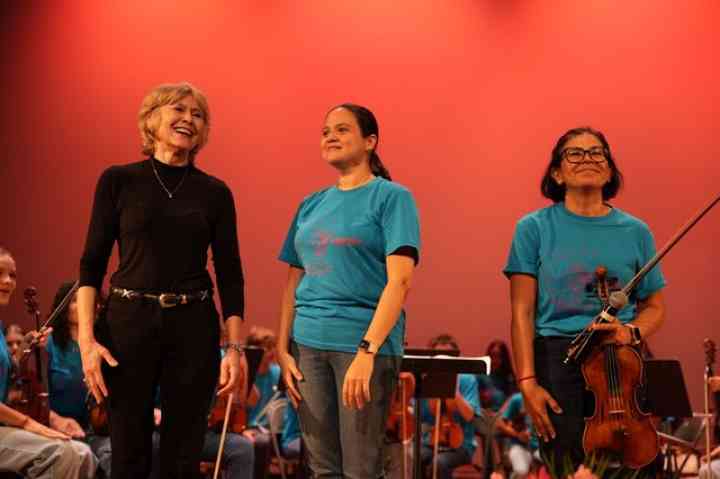
Nicolette Solomon, Lidia Blanco, and Carla Loaiza-Yee (left to right).
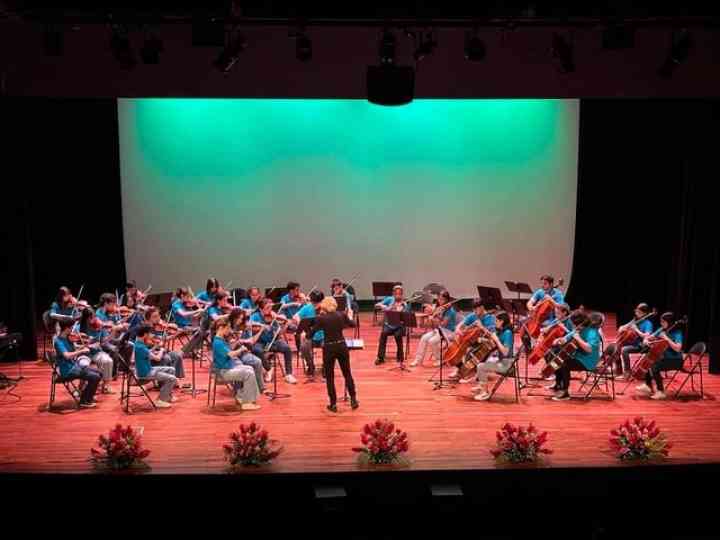
Nicolette Solomon conducts the Suzuki Fest Festival Orchestra in San Jose, Costa Rica.
The next year, registration to the Suzuki Fest had grown significantly, enabling us to add a Festival Orchestra to the curriculum. By 2012, there were over 12 teachers, sending their students to the Festival, to take part in masterclasses, group classes and orchestra. The Franz Liszt Schule, Country Day School, Municipal music schools, and several other schools and colleges started sending their students and teachers to the Suzuki Festival. I was still returning to Costa Rica every six months too, so got to know the many little children and now budding teenage violinists very well. Then, Lidia Blanco and Carla’s students started winning the National Symphony Orchestra Concerto Competition routinely! Their students were getting opportunities to perform major concerti with the Costa Rican Symphony orchestra year after year!
By 2016, the enrollment to the Festival had increased so much that we had to add a second string orchestra to the schedule. By that time, the Lincoln School had fully embraced the Suzuki Festival, and has since become the home for every workshop and Festival, allowing the teacher training, the orchestra rehearsals, early childhood classes, group and masterclasses to take place in one beautiful, well organized, and well-appointed venue, also providing us with a great auditorium with outstanding technology. None of this would have been possible without the vision, drive, determination and passion of Lidia Blanco and the brilliant teamwork and teaching of “techy”-violinist supreme, Carla, who works tirelessly behind the scenes. The Suzuki education in Costa Rica serves communities of all demographics.
Many of these Suzuki students who have graduated have now gone on to study at Interlochen Arts Academy, Guildhall School of Music, the University of North Texas (two on full scholarships), Germany, and the Music Institute of Chicago, among others.
My dear friends, Ann Montzka, Lucy Shaw, Brian Lewis, Scott Conklin, Edmund Sprunger, Liz Arbus, guitarist Andrea Cannon and generous Barbara Balatero have all been there, at different times, teaching, helping to create a Suzuki movement that has changed the musical landscape of Costa Rica. This year, we added Dr. Rossitza Goza to the team, yet again elevating the experience for the more advanced violinists of Costa Rica, inspiring the newer parents and budding little ones to fully embrace the Suzuki experience and community of nurturing, involved, committed Suzuki parents and teachers.

